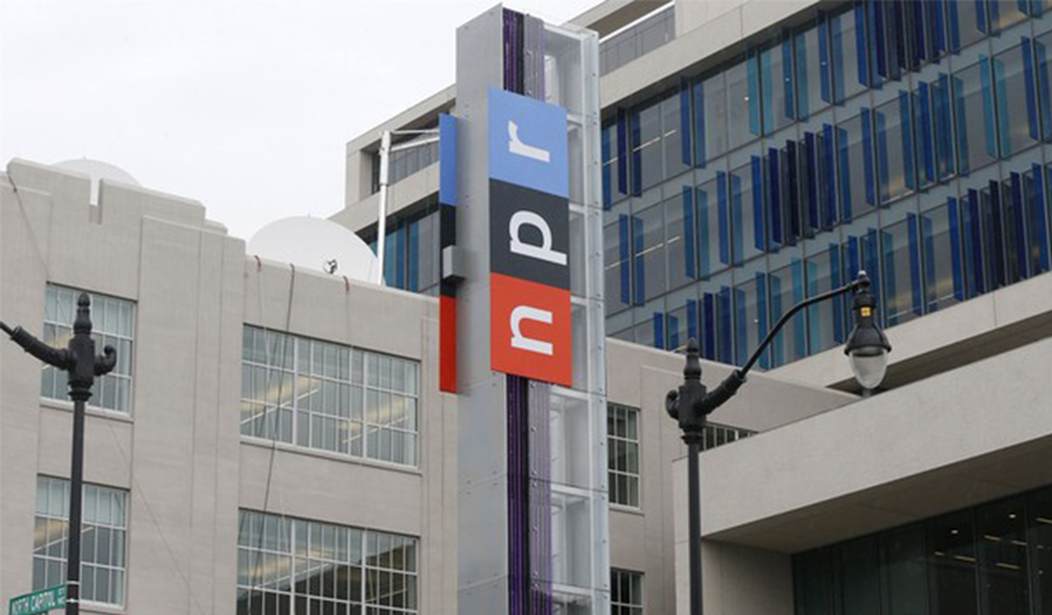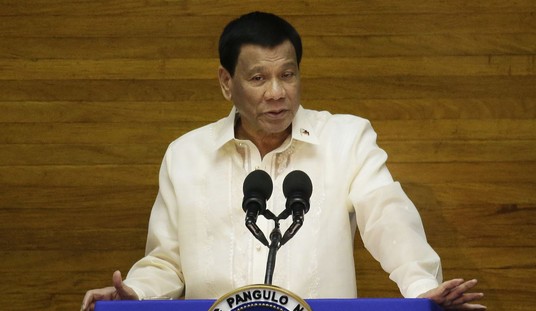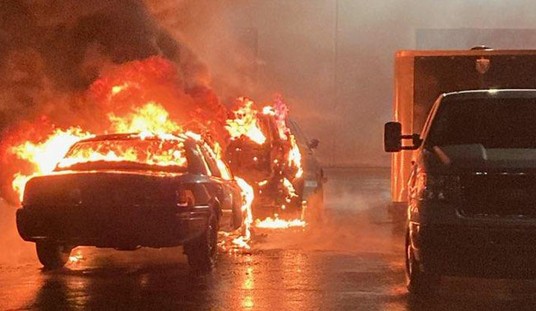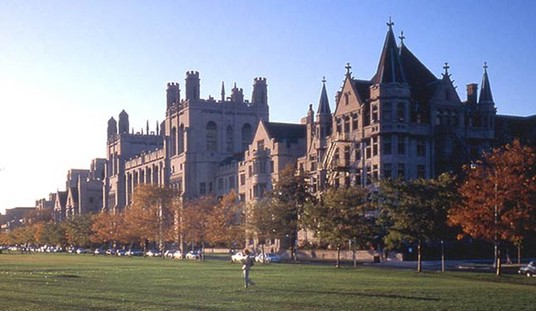National Public Radio is struggling and today the NY Times offers to bring us inside the "crisis" that has engulfed the network. The gist of this crisis is made up of two parts that, according to the authors, may or may not be related. Those two parts are as follows: Getting woke and going broke.
The 'get woke' part of the problem was highlighted recently by editor Uri Berliner who wrote a piece criticizing the network's commitment to DEI and far-left politics above all else. Today's article makes clear that people inside NPR were unhappy about that and brushed it off as unfair and untrue. And yet...we'll return to that in a moment.
The second issue, going broke, is something that the article's authors uncovered after having a look at some leaked internal documents.
NPR’s traditional broadcast audience, still the bulk of its listenership, is in long-term decline that accelerated when the pandemic interrupted long car commutes for millions of people. The network has begun to sign up digital subscribers who pay for ad-free podcasts, but that business has lagged far behind that of its competitors.
While NPR still has an audience of about 42 million who listen every week, many of them digitally, that is down from an estimated 60 million in 2020, according to an internal March audience report, a faster falloff than for broadcast radio, which is also in a long-term decline...
“I believe that public radio has five to seven years to reimagine itself before it’s simply unsustainable,” said Eric Nuzum, a former NPR executive and co-founder of the audio consulting and production company Magnificent Noise. “And they can’t take two or three years of that time debating a business model.”
In short, NPR is dying. Whether it can be turned around before that happens remains to be seen but something will have to change for it to survive. Again, the Times doesn't want to say that NPR's politics were the cause of its downfall but it is willing to say that its commitment to DEI, which people inside the company cultishly refer to as the "north star," has not helped.
Like many companies that committed themselves to confronting racial inequality in recent years, NPR put an ambitious action plan in place. Its commitment to diversity — which Mr. Lansing called NPR’s “North Star” — would be not only a moral imperative but a foundation of its business strategy.
NPR’s leaders redoubled their efforts to diversify their audience and work force and closely tracked metrics for each. They added podcasts aimed at people of color and younger listeners. They promoted people of color to high-profile reporting and hosting jobs. All of these moves were meant to ensure the nation’s public radio network would remain competitive as the country’s population continued to grow more diverse.
So it came as a disappointment to some people on NPR’s board last fall when they were presented new internal data showing their efforts hadn’t moved the needle much with Black and Hispanic podcast listeners.
One critic of the "north star" approach, former general manager of the St. Louis station Tim Eby, summed it up this way, "I think they’ve overcompensated on attempts to reach audiences that are not going to listen." Eby is no longer the GM in St. Louis because he was accused of running a workplace awash in white supremacy. He is now suing for defamation.
In July 2020, the suit says, 26 staffers frustrated with the lack of diversity and treatment of minorities at the station sent Eby and then-executive editor Shula Neuman demands for a list of changes, including more diverse hiring and the return of a Race, Identity, and Culture editor.
Eby’s suit claims the station refused several of the demands that were “financially impossible” or would create illegal “race-based hiring criteria.”
The next month, a group of staff published a blog post on the website Medium under the byline STLPR Reporters and Producers of Color calling for the station to recognize systemic racism. The post said Eby “chose to uphold white supremacy at the station by remaining complacent with the status quo.”
What this says to me is that the problem at NPR isn't just its external struggle to gain listeners but its internal struggle sessions which sound remarkably like the ones that have swept through every leftist organization over the past few years. In 2022 Intercept reporter Ryan Grim described how this dynamic was hobbling some of the leading progressive political organizations in the country.
“To be honest with you, this is the biggest problem on the left over the last six years,” one concluded. “This is so big. And it’s like abuse in the family — it’s the elephant in the room that no one wants to talk about. And you have to be super sensitive about who the messengers are.”…
“So much energy has been devoted to the internal strife and internal bullshit that it’s had a real impact on the ability for groups to deliver,” said one organization leader who departed his position. “It’s been huge, particularly over the last year and a half or so, the ability for groups to focus on their mission, whether it’s reproductive justice, or jobs, or fighting climate change.”…
“My last nine months, I was spending 90 to 95 percent of my time on internal strife. Whereas [before] that would have been 25-30 percent tops,” the former executive director said. He added that the same portion of his deputies’ time was similarly spent on internal reckonings.
We get another struggle session story about a senior producer whose hip-hop show "Louder Than a Riot" was cut last year.
Soraya Shockley, who had previously worked at The Times, grilled Mr. Lansing during an employee question-and-answer session about why the show had no dedicated budget, pointing out the lack of resources supporting content that furthered diversity, equity and inclusion, or D.E.I...
Later on the call, after Mr. Lansing urged employees to be more mindful of “civility” in their questions, an NPR employee wrote in an instant-messaging chat accompanying the conversation that the word ‘civility’ is often used as a cudgel against people of color, calling the language choice “racist.”
After the meeting, Shockley filed a human resources complaint against Mr. Lansing, saying his remarks about civility amounted to “dog-whistle racism,” according to a person with knowledge of the exchange. The complaint against Mr. Lansing was referred to an outside law firm, which did not recommend any punitive action.
It's the same pattern that the Intercept described two years ago. A lot of NPR's energy is being devoted to internal allegations of racism and white supremacy. In this case, NPR had to hire an outside firm to look into these claims. That firm presumably had to speak to everyone involved. The end result is that a lot of time and money was spent on a review to conclude what every sensible person already knew, i.e. a mention of "civility" during a zoom call was not racism.
It sounds like NPR is paying a steep price for its commitment to the "north star" of DEI but because everyone from the president on down is a true believer, they can't see it. Is there any way out of this? Could the network strive for more ideological diversity?
Frankly, NPR has been a progressive hothouse for so long I don't think they have any real hope of expanding their listenership. Their audience of progressive white people wouldn't tolerate that. They would just tune out. So they're stuck with this cultish focus on DEI and the struggles sessions that come with it. Only one thing is certain and that's that US taxpayers shouldn't be paying for this. If they want to follow the north star, let them do it on their own dime.







Join the conversation as a VIP Member